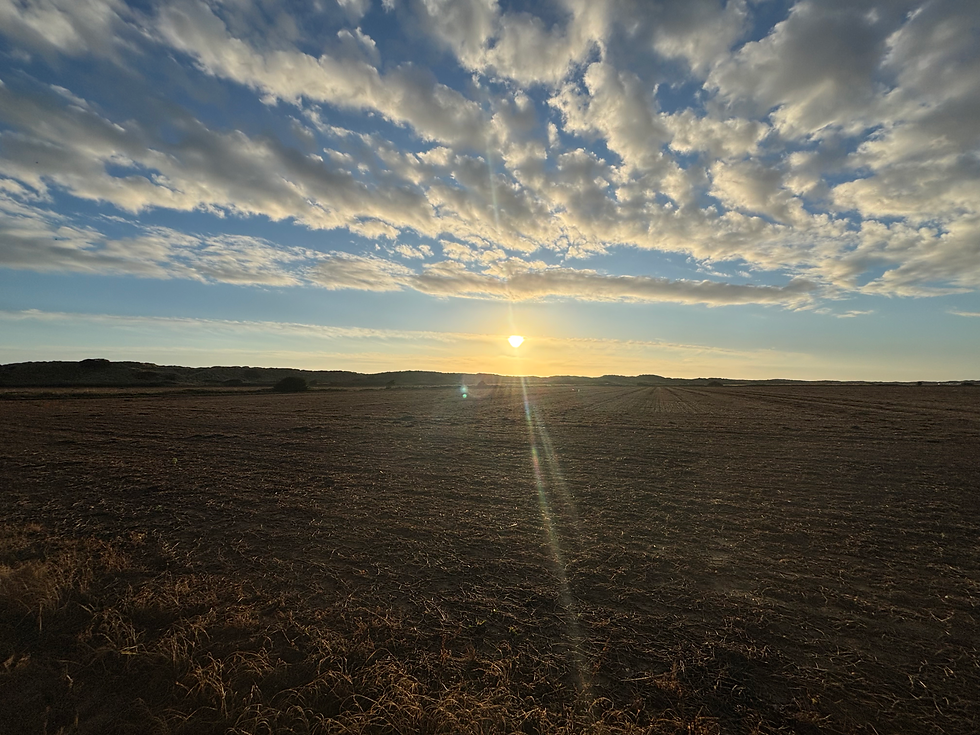The Moral Maze - an obligation to cut our individual emissions...?
- tg42lowcarbonbirding
- Jan 16, 2023
- 3 min read
Are we morally obligated to reduce our carbon emissions?
You have to be incredibly mendacious or astoundingly moronic to argue that anthropogenic climate change is not a grave threat to our planet. Indeed, there are a few people like that here and there, doubtless even in birding, but I’m not going to waste time on them. I will presume that everyone reading this is smart enough to understand where we are, what we are looking at and that what we are looking at is very scary.
So, given that we accept our actions are the cause of the mess we are in, and that as a whole “we” as a society should address the problem, does that mean that as individuals we are also morally obligated to reduce our personal carbon emissions, especially given the lack of action from governments? Well, there are a couple of ways of looking at it:
“But my emissions are insignificant!”
An argument often made is that an individual’s carbon emissions are insignificant when stacked against the whole, and as a result the actions of an individual will have no material effect on reducing overall emissions. Therefore, an individual might claim that they may as well carry on as they are doing. If we adopt this position then there really is only one outcome and we won’t like it. We generally accept that in other situations where our individual actions are very small, it is still morally correct to act to reduce our own contribution to the situation rather than have to be forced into doing so by authority – think speeding, racism, sexism etc. Not perfect analogies but I hope you get the general idea.
Individual actions but collective impact
Another way of looking at things, and one I have come to see as very useful, is that just because an individual act doesn’t make a difference to the overall outcome, it doesn’t mean that an individual act doesn’t make a contribution to the outcome. Although an individual’s actions are not harmful in isolation, they are when aggregated. This is also true in an opposite sense when talking about an individual’s actions to reduce their emissions. Any single act will be incredibly small in isolation when compared to the size of the problem but every single act works to ameliorate the harmful effects of climate change and will have positive indirect effects of raising awareness and setting a moral example to others, as positive feedback of the low-carbon birding movement is doing.
An equity-based argument
Another slightly abstruse way of thinking about the problem involves personal carbon budgets and a fairness-based argument. This relates to the amount of carbon emissions a person is entitled to emit as their far share of the global carbon budget. People who emit more than their fair share are therefore morally obligated to reduce their emissions to that level. The current level of emissions we are each allocated in the UK is depressingly low and would be extremely unpopular with many in the birding community, being under 4T per year for everything at present, reducing to 3.1T by 2030 to meet the 2.0 degs C threshold, never mind 1.5 degs C. As a sobering indication, 10,000 miles in a Ford Fiesta uses up 2.6T on its own!
An introduction to carbon budgets, narrated by Prof Kevin Anderson from the Tyndall Centre. I recommend watching any and all of Kevin's videos on Youtube. He is a direct, honest, clear communicator of the climate crisis and mitigation pathways etc.
So there we have it. We are in a real mess and there are no non-radical solutions now. My view is that we should all be doing whatever we can to lower our non-essential emissions while also pressuring for systemic change, as although our individual actions are small in isolation, we can still have a positive impact and influence overall. There’s no escaping from the fact that we simply have to change - there is no alternative. The people currently affected the most by the changing climate are the poor in many developing countries of the Global South, but that is rapidly changing and we are now seeing the effects in western Europe.
Of course, there are those who will simply continue to burn as much carbon as they want and doubtless we all know a few people like that. Still, I don’t think there are more than a handful of people in the birding community who are genuinely unwilling to act more responsibly, so let's not worry too much about them. Hopefully, there are enough of us out there with a positive, progressive, low-carbon birding outlook to spread the word, promote change and keep hope alive.




Comments